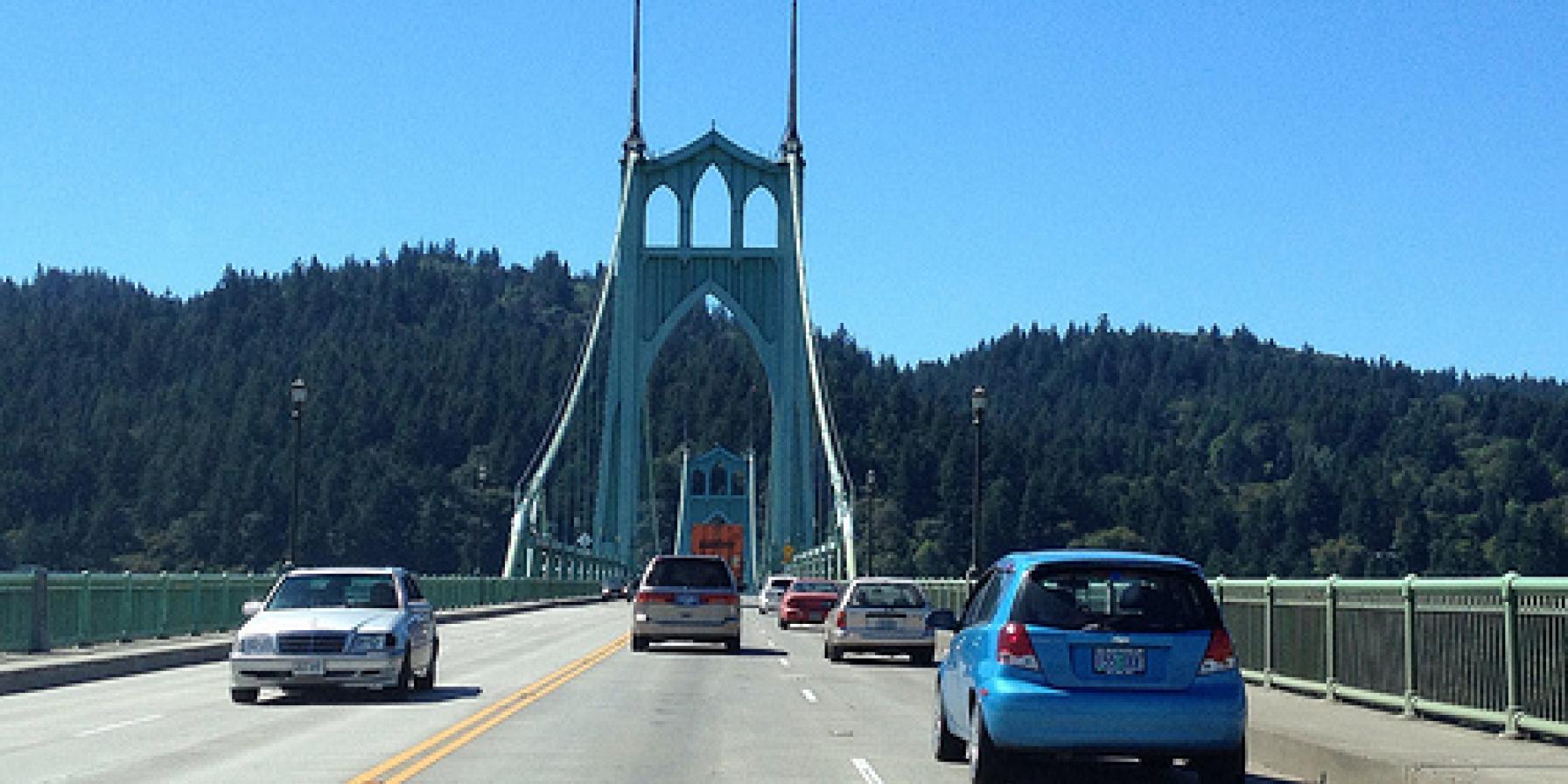- Home
- IBTTA Insights
- ‘First Domino’ in Oregon Could Lead to More MBUF Activity
Stories
‘First Domino’ in Oregon Could Lead to More MBUF Activity


The “first domino to fall” on mileage-based user fees will be in place in April when Oregon begins operational trials of its road user charging pilot project.
That’s the way Tom Taylor, Verizon Telematics Vice President of Advanced Strategy, described the milestone to Toll Roads News earlier this year.
“Oregon is out in front of the other states and everybody will be watching them to see how it works,” Taylor told local correspondent Bruce Melzer. “It would not be unreasonable that in 2016 there would be two, three or maybe a half-dozen states that would like to come into this program, and we would like to be ready for that.”
Three Vendors, 5,000 Volunteers
Pending vendor certification, the Oregon Department of Transportation announced in late January that it had selected Verizon, Sanef, and telematics company Azuga for the pilot. Public Affairs Officer Michelle Godfrey said operational trials would involve 50 volunteers installing tracking devices in their cars, to test the vendors’ ability to report mileage, collect fees, and manage customer accounts.
Program participants will pay 1.5 cents per mile driven instead of state gas tax. The program will test three different methods of calculating mileage-based charges.
“Although the full program with 5,000 volunteers won’t start until July 1, 2015, Oregon is scheduled to start a website and marketing effort to promote the RUC concept,” TRN reports. “Azuga and Verizon will also launch marketing services to promote their offerings and the program as a whole.”
A System the Public Can Love
It was a very big deal in July 2013, when Oregon passed enabling legislation for the RUC pilot. IBTTA Executive Director and CEO Patrick D. Jones hailed the bill as “a major victory for alternative forms of transportation funding across the country at both the state and federal level,” adding that “Oregon has lived up to its pioneer history and established a new frontier in transportation funding.”
Road Usage Charge pioneer Jim Whitty, manager of ODOT’s Office of Innovative Partnerships and Alternative Funding, traced the decision to launch a pilot back to earlier work in 2006 and 2007.
“People here in Oregon determined what was missing from the original pilot, what adjustments needed to be made, and over a period of time, we made them,” he said. “The result is a system that is more acceptable to the public than the original one, and more acceptable politically as a result.”
Nearly a dozen states including California, Washington, Nevada and Minnesota are looking into Road User Charging and developing legislation.
Get a first-hand look at Oregon’s innovative road user charging pilot and what others are doing when you attend IBTTA’s Transportation Finance and Road Usage Charging Conference, April 26-28, 2015 in Portland, Oregon.
photo credit: St. Johns Bridge via photopin (license)

Joining IBTTA connects you to a global community of transportation professionals, offering unmatched opportunities for networking, knowledge-sharing, and collaborative innovation in the tolling and transportation sector.
Follow IBTTA on social media for real-time updates on transportation trends and collaborative opportunities.





